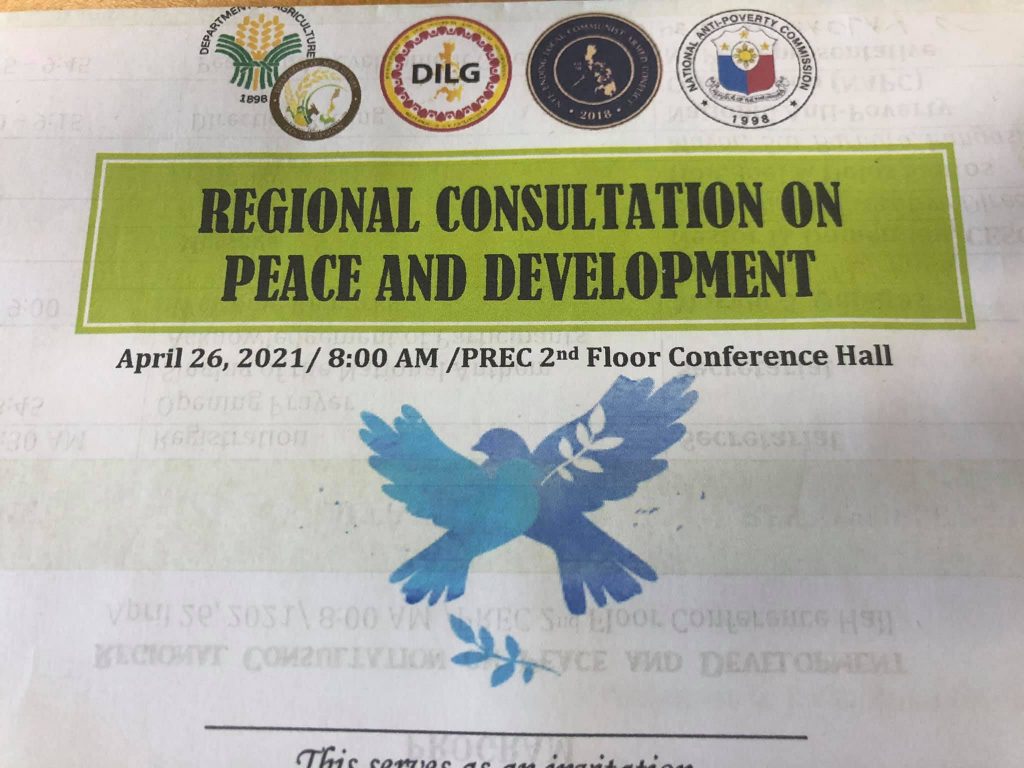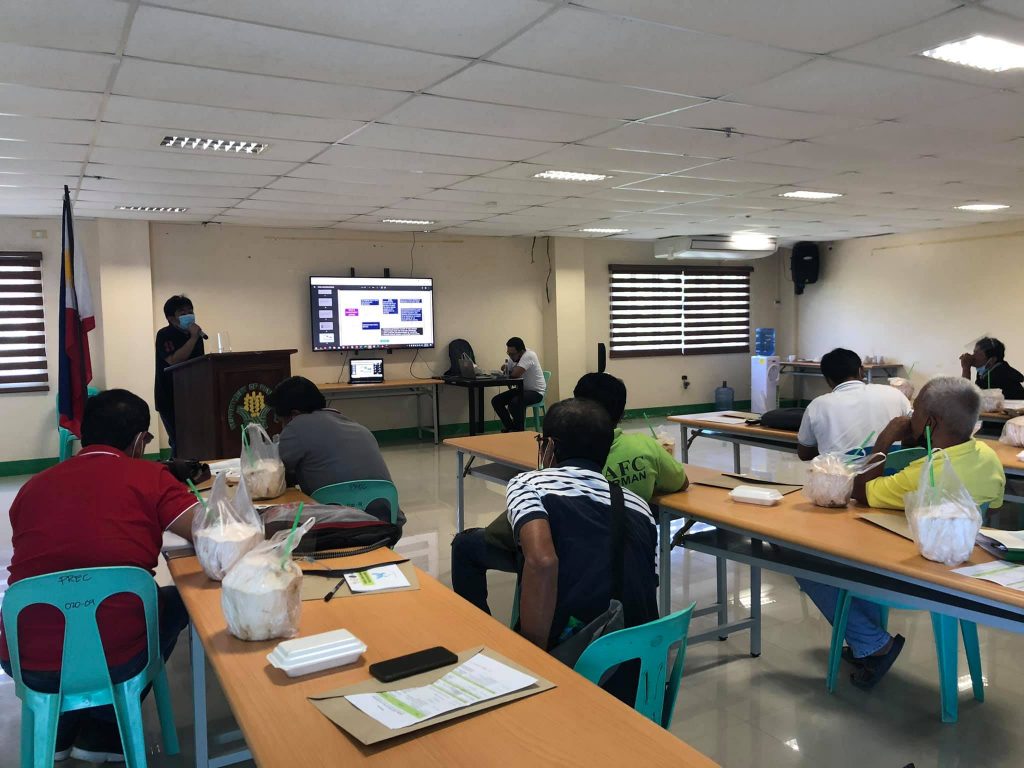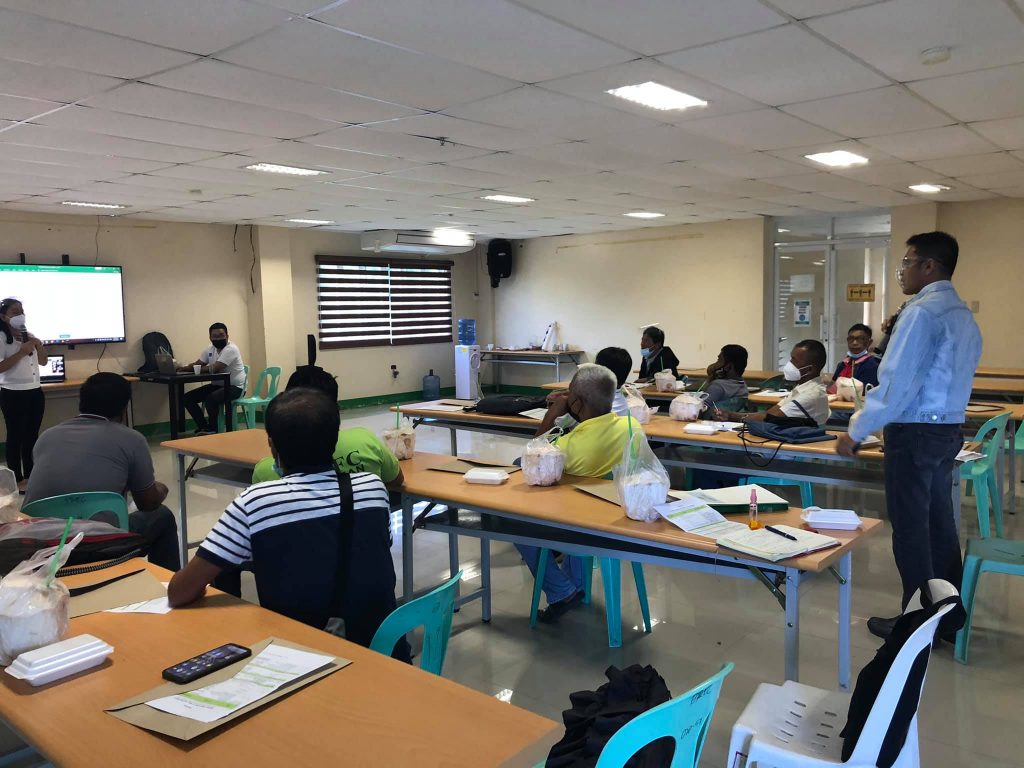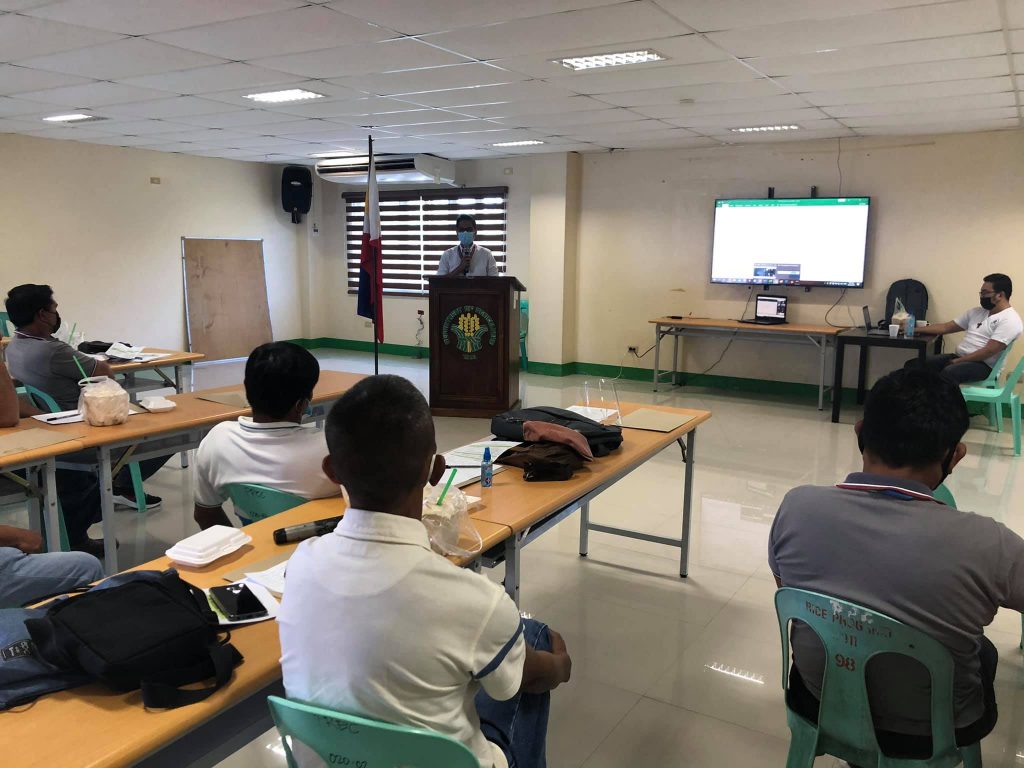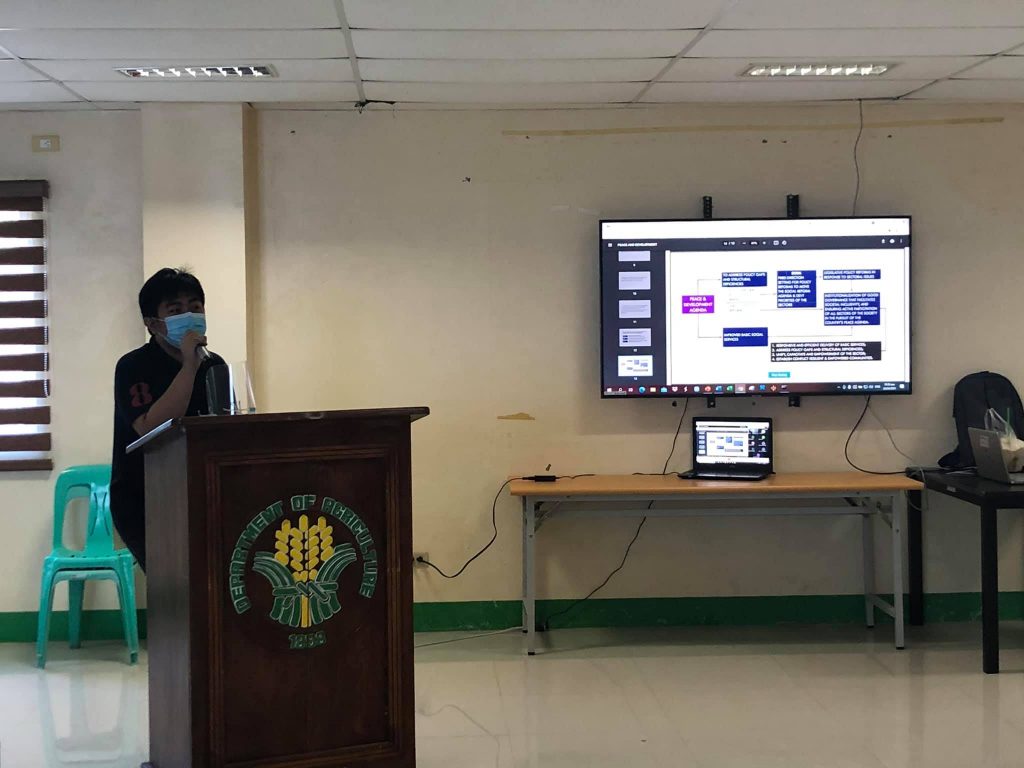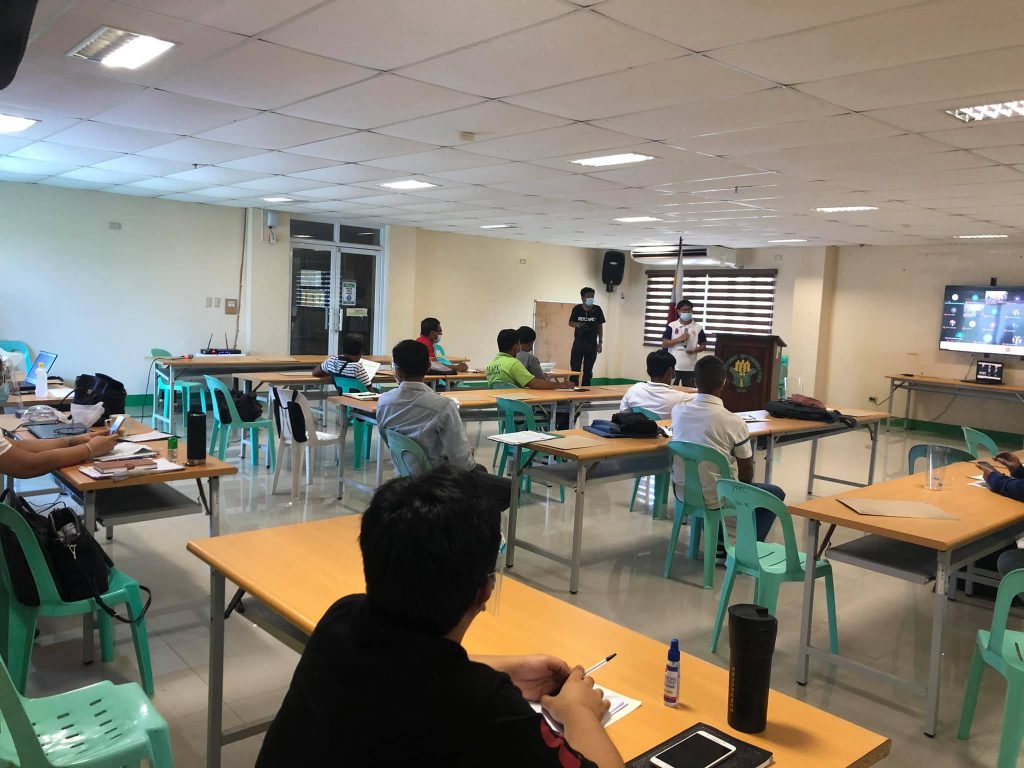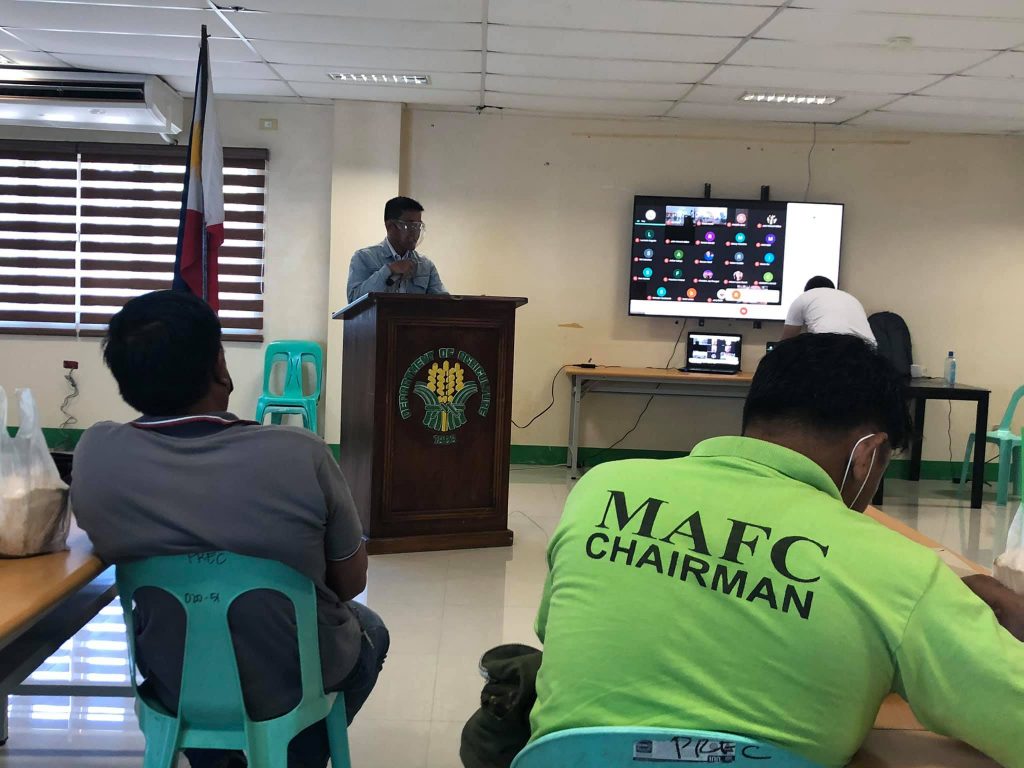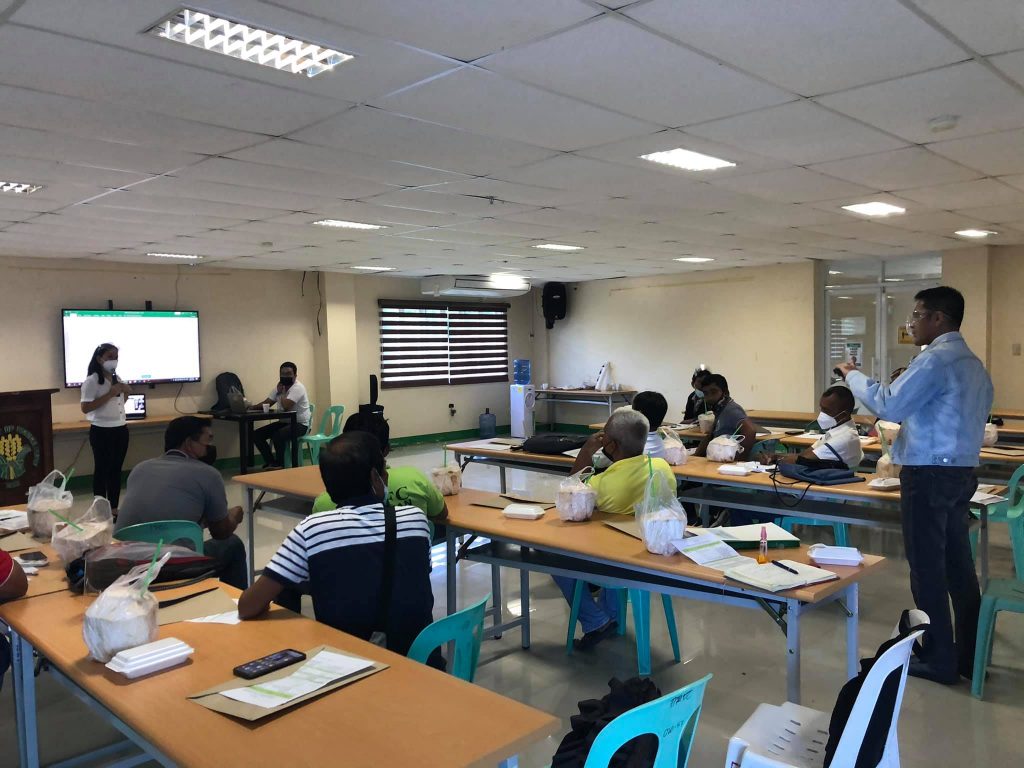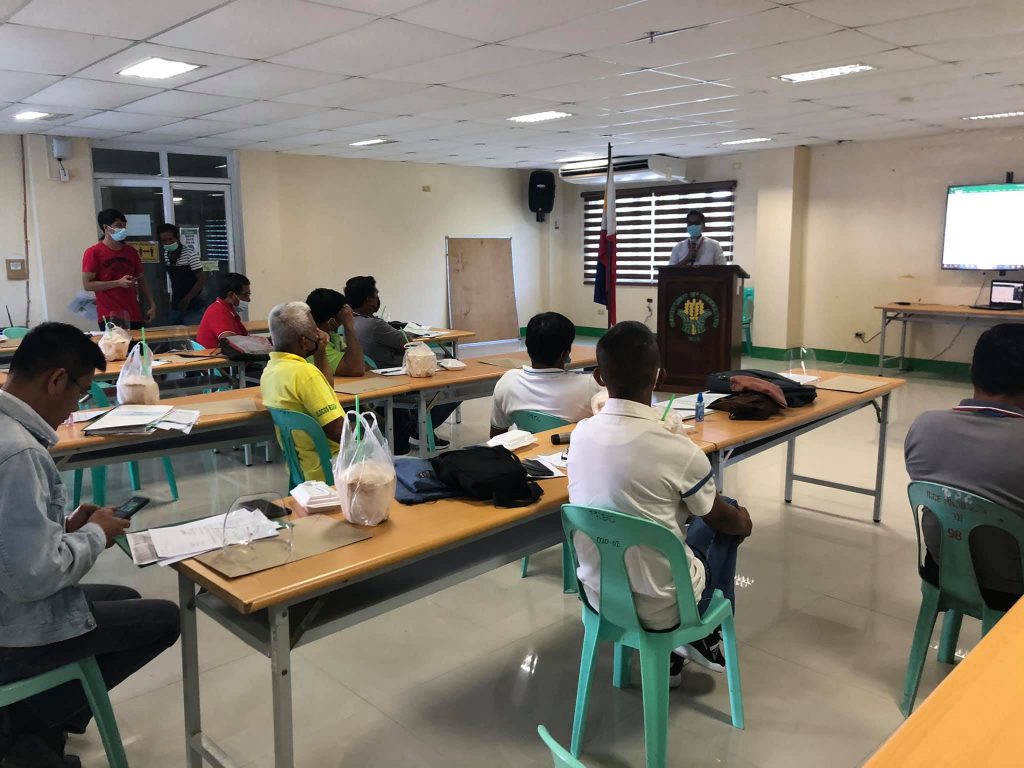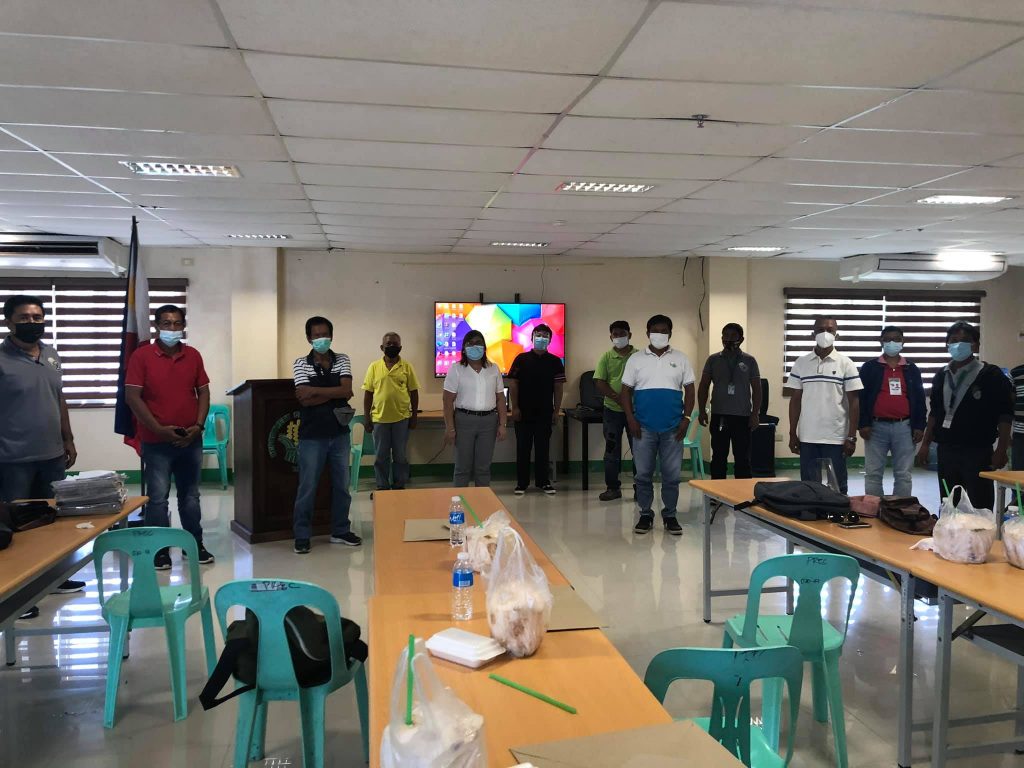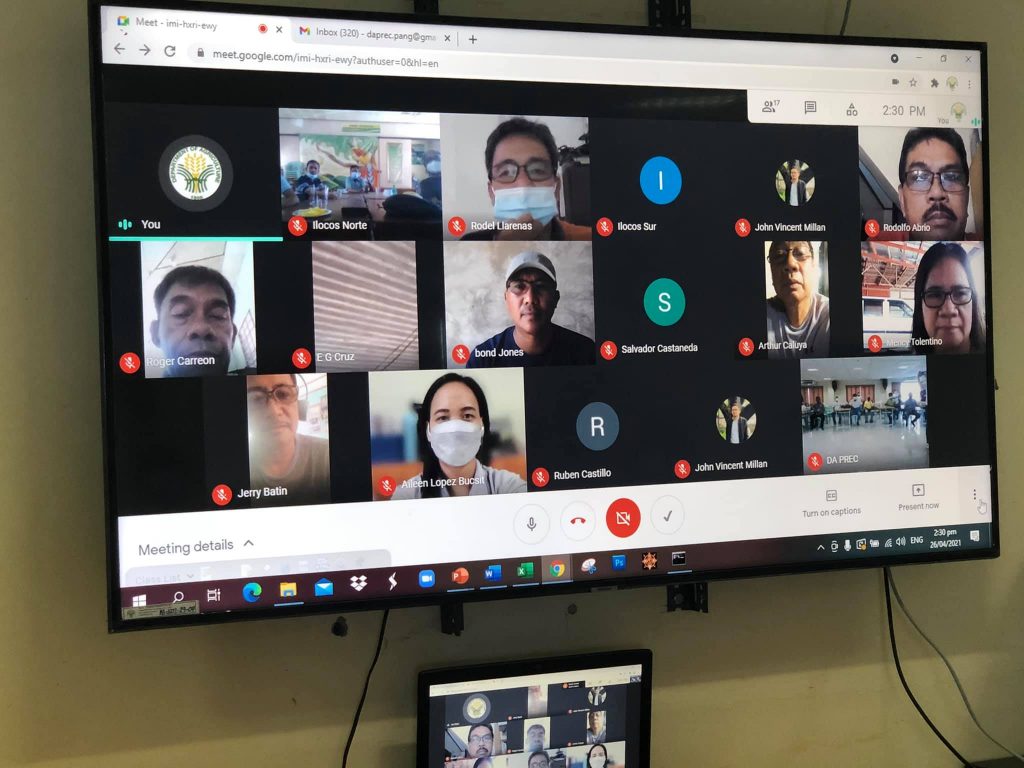“Food insecurity can affect peace in our country and the absence of peace hinders development. Hence, food is truly an integral part to maintain peace and achieve development.”
This is how Department of Agriculture-Regional Field Office I OIC Regional Executive Director Nestor D. Domenden attributed the importance of food in attaining peace and development in the country.
Speaking before Agriculture and Fishery Council leaders via both virtual and on site during the conduct of the Regional Consultation on Peace and Development held at the Pangasinan Research and Experiment Center in Sta. Barbara, Pangasinan, Domenden acknowledged the very important role of the country’s “heroes”, the farmers and fisherfolk in ensuring not only the attainment of Food Security but security as well in their homes and communities and the country as a whole.
“We are all called upon to participate in this activity today because we need to hear from you, as leaders in your community, the issues and concerns in your respective sectors so that our government can respond timely and appropriately to your needs.”, he said.
The Regional Consultation on Peace and Development is a joint activity by the Department of Agriculture (DA), Department of Interior and Local Government, National Task Force Ending Local Communist Armed Conflict (NTF-ELCAC), and the National Anti-Poverty Commission (NAPC) which aims to elicit responses from agriculture and fishery council leaders to identify gaps and provide specific interventions to address issues and concern of the agriculture sector and avoid the influence of armed groups taking advantage on the plight of farmers and fisherfolk to insight insurgency.
Mr. Neil Mamaclay representing the NAPC provided the direction setting for the activity explaining to the participants that peace and development always go together. He explained how the government recognizes that poverty is one of the root cause of insurgency, hence, it is important to be able to formulate essential responses to issues affecting inclusive growth in a particular sector.
Through sectoral deliberation, the activity aims to identify existing programs and service interventions that will help the government be able to formulate a sector specific organizing strategy within the framework of peace and development.
During the said activity, the participants identified thematic issues such as the need for a more effective soil rejuvenation program, provision of more useful and practical farm equipment and facilities, provision of seed varieties on corn, garlic, and other commodities that should be suitable to the existing climatic condition of the region, timely delivery of interventions, funding support for more farm to market roads, provision of proper compensation for agricultural workers, more specific intervention/support for farm workers affected by the mechanization program, lessen requirements for easier access to credit, protect the depleting production areas due to land conversion and the representation of agri sector in the zoning board of adjustment and appeals, these among others. The participants also aired their concern and apprehensions on how the agri sector would still be prioritized with funding support from the Local Government Units should the Mandanas ruling be implemented.
All the concerns raised and discussed during the forum will form part in properly identifying policy gaps to improve basic services for the sector and as basis in crafting policy reforms both in the legislative and executive branch.
The NAPC representative also informed that output of the said consultation will be presented to the office of President Rodrigo R. Duterte to formulate possible social reforms agenda that will be included in the upcoming State of the Nation Address (SONA) of the President.
This collaborative effort of the participating agencies hopes to give more practical, effective and efficient solutions to pressing issues of the various sectors that could have direct impact in achieving peace and development for the country.###
